We have imported this pretty small freshwater mussel from Thailand again now. The species has a wide distribution in Asia. It is recorded from Thailand, Cambodia, Vietnam, India and China. Nevertheless very little is known about the species. Scabies crispata is a member of the Unionidae family. The central european large freshwater mussels of the genera Anodonta, Margeritifera, Pseudanodonta and Unio are also members of that family. Like these Scabies crispata (which is by far more attractive and with a maximum length of 5cm much smaller) has an unpleasant property: they can cause a fish disease! The larvae of the Uninidae are called Glochidia and they are fish parasites. Depending on the species the glochidia live parasitically on the fins, the body or the gills.
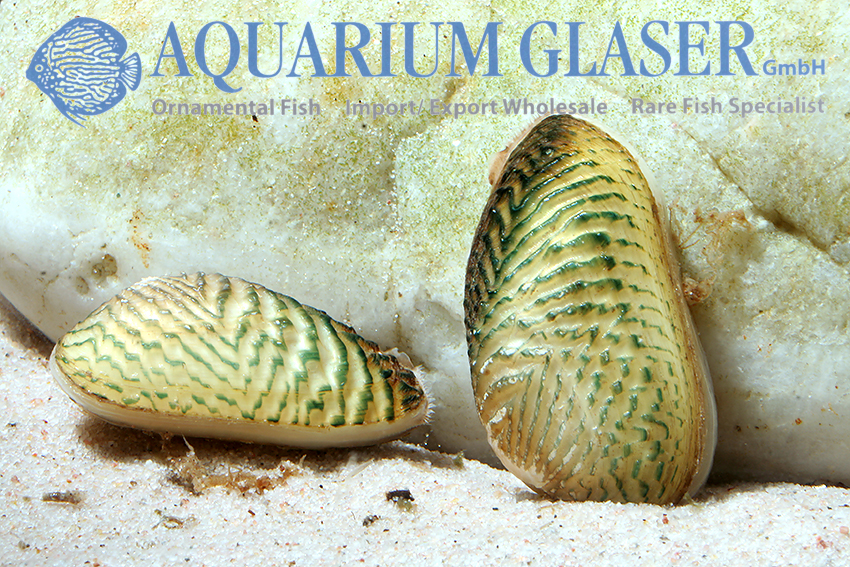
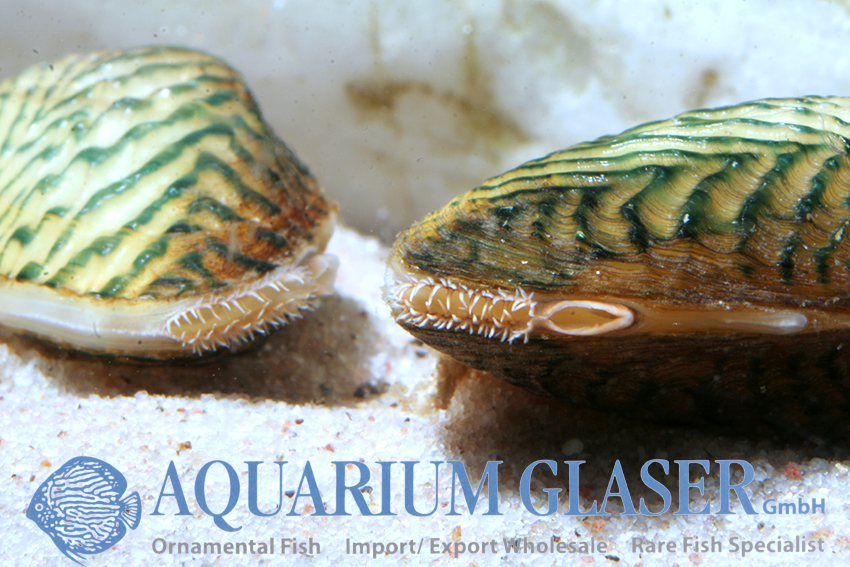
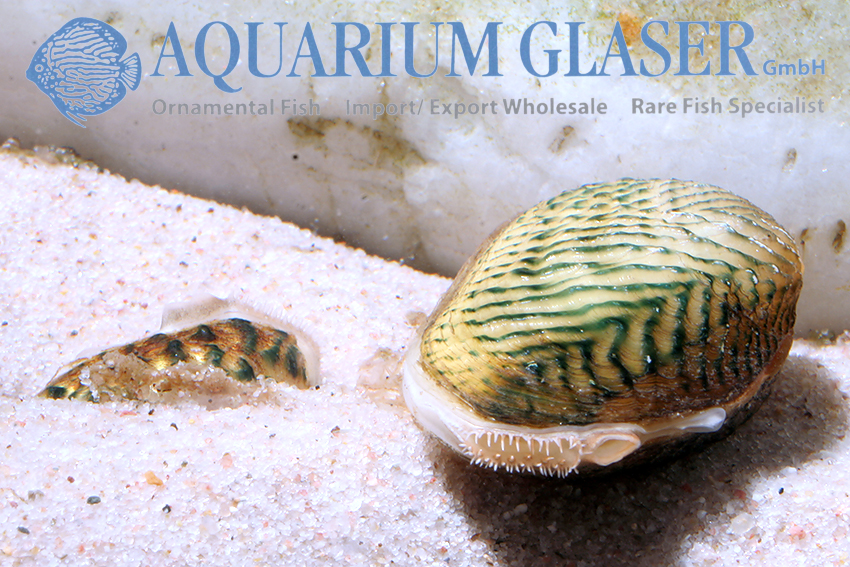
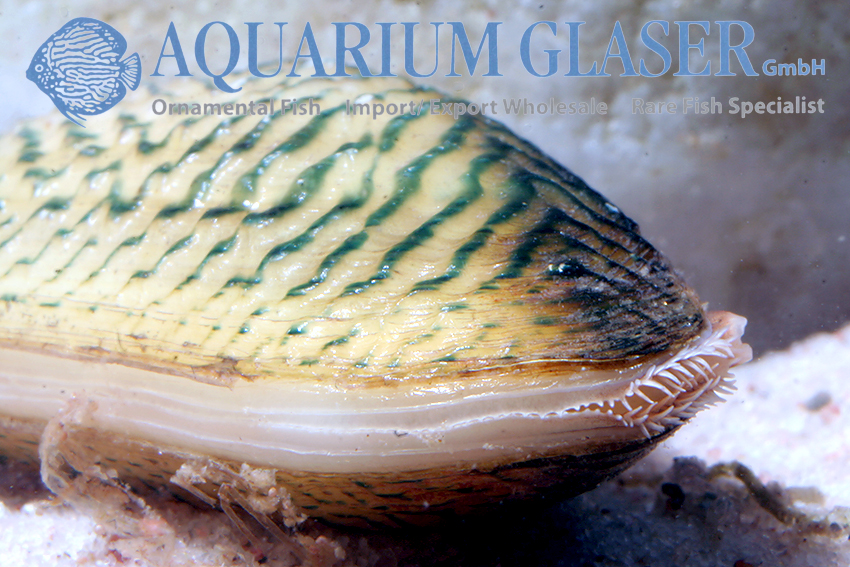
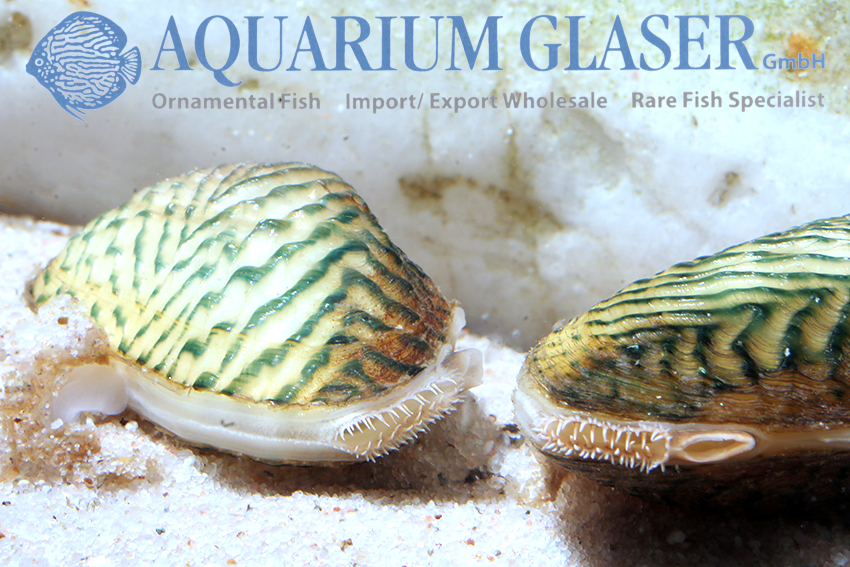
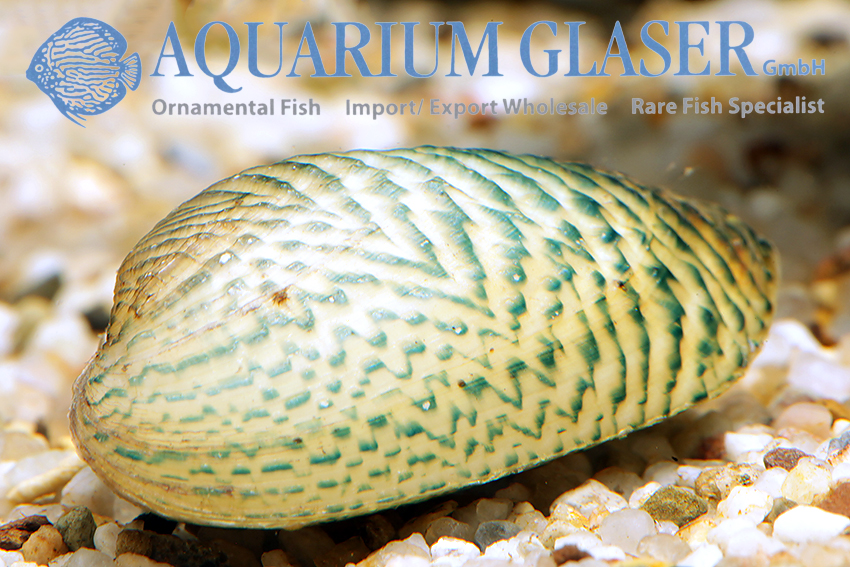
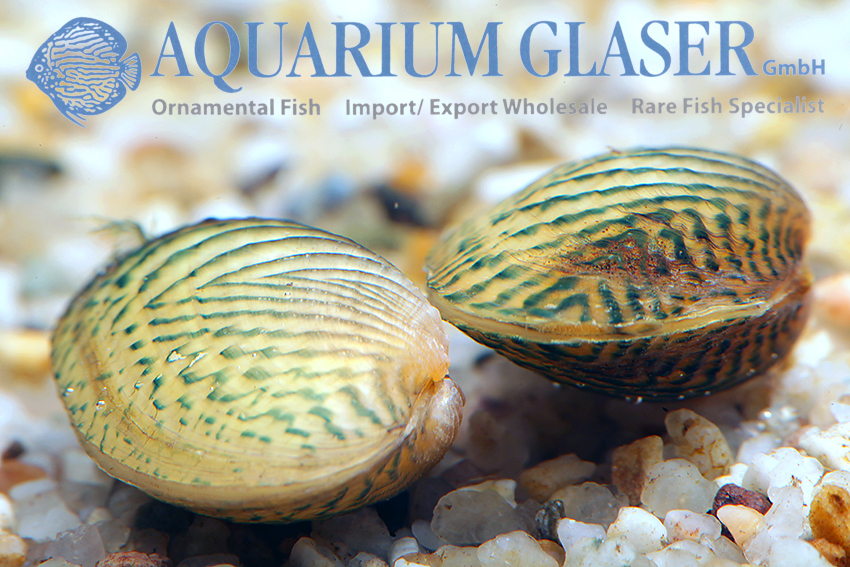
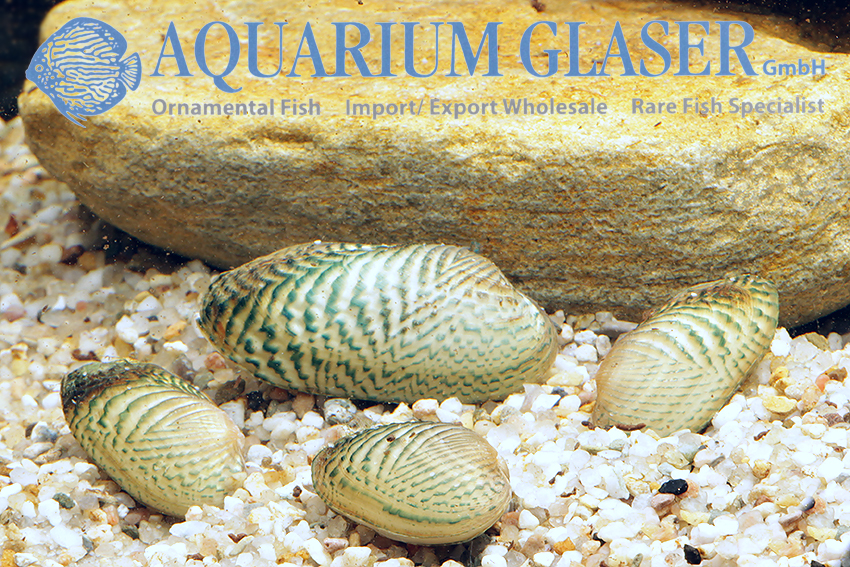
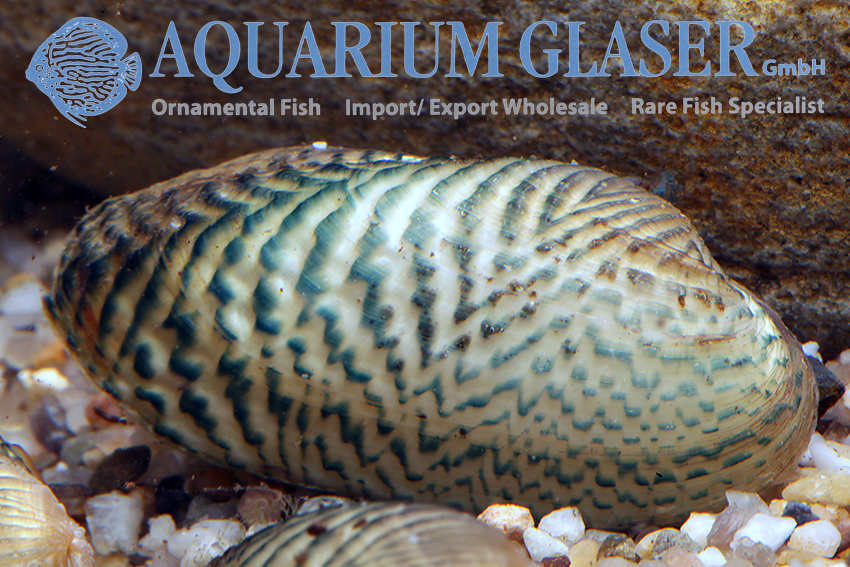
When the glochidia have attached on the skin they encapsulate themselves. Medical treatment is impossible as any substance that is able to kill the glochidia in the skin will for sure also kill the fish. A few glochidia, which look a bit like Ichthyophthirius-spots for the bare eye, do not harm any fish. But mass-infection may become fatal. Our native mussel species are host specific and even more than that: they are population specific. This means that the very same fish species can serve as a perfect host in one population whereas specimens of other populations of the same species may be completely immune. Very little is known on Scabies crispata in this respect, except that it has unhooked glochidia which are typically found in gill parasiting species.
Most often Unionidae have different sexes, eg males and females. The males release the sperm in the open water from where it becomes breathed in by the female. The eggs are produced in sacks in the gills and become fertalized here. But it is also known the the uppermost (nearest to the spring) specimens in a flowing water can be hermaphrodites that are able to produce both sperm and eggs. It is not known wether this is genetically determined or an ontogenetic phenomenon.
May it be as it is: Scabies crispata are highly interesting animals and allow a lot of fascinating observations. You must have an eye on them to hinder the glochidia to do harm on the fish. Glochidia are released over a period of several days or weeks. So if you spot some on your fish you should separate the mussels for some time from the fish and keep them in an extra aquarium. As already mentioned, an otherwise healthy fish will not become harmed by some glochidia. Scabies crispata is a filterer, so it must be fed with a solution of yeast and water that has to be placed near the mussels by a pipette.
For our customers: the animals have code 487852 on our stocklist. Please note that we only supply the wholesale trade.
Text & photos: Frank Schäfer




